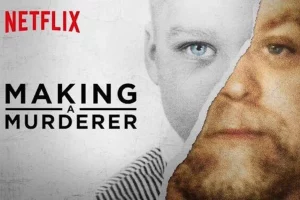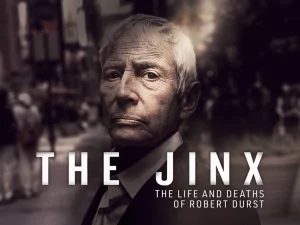
Introduction
In recent years, there has been a noticeable surge in the popularity of true crime documentaries. This genre, once relegated to the fringes of mainstream media, has now captured the attention of millions worldwide. The rise of true crime documentaries can be attributed to several factors, including advancements in technology, the proliferation of streaming services, and an innate human fascination with the darker aspects of human nature. This article aims to explore the various dimensions of this phenomenon, examining its origins, evolution, and impact on society.
Historical Context

1. Early Beginnings
The true crime genre has a long history, dating back to the 16th century with the publication of pamphlets detailing criminal cases. These early accounts were often sensationalized and aimed at a broad audience. Over time, the genre evolved, with newspapers and magazines dedicating columns to crime stories. The advent of radio and television brought true crime into the living rooms of the average household, with programs like “Dragnet” and “Unsolved Mysteries” captivating audiences.
2. The Role of Literature
Books have played a significant role in the rise of true crime documentaries. Truman Capote’s “In Cold Blood,” published in 1966, is often cited as a pioneering work in the genre. Capote’s meticulous research and narrative style set a new standard for true crime storytelling. Other notable works, such as Ann Rule’s “The Stranger Beside Me” and Vincent Bugliosi’s “Helter Skelter,” further cemented the genre’s popularity.
Technological Advancements

1.The Internet and Social Media
The rise of the internet and social media has had a profound impact on the true crime genre. Online forums and communities have sprung up, allowing amateur sleuths to discuss and dissect cases in real-time. Websites like Reddit and YouTube have become hubs for true crime enthusiasts, with countless channels and sub reddits dedicated to analyzing criminal cases.
2. Streaming Services
The proliferation of streaming services like Netflix, Hulu, and Amazon Prime has been a game-changer for the true crime genre. These platforms have made it easier than ever for viewers to access a vast library of true crime content. Documentaries such as “Making a Murderer,” “The Staircase,” and “Tiger King” have garnered massive viewership and sparked widespread discussions.
The Appeal of True Crime

1. Psychological Fascination
One of the primary reasons for the rise of true crime documentaries is the innate human fascination with crime and criminal behavior. Psychologists suggest that this interest may stem from a desire to understand the darker aspects of human nature. True crime documentaries offer a glimpse into the minds of criminals, providing viewers with a sense of insight and understanding.
2. The Quest for Justice
Many true crime documentaries focus on cases of wrongful convictions or unsolved mysteries. These stories often highlight flaws in the criminal justice system, resonating with viewers who are passionate about justice and fairness. The rise of true crime documentaries has, in some cases, led to renewed investigations and even exonerations.
3. The Art of Storytelling
The rise of true crime documentaries can also be attributed to the art of storytelling. Filmmakers and producers have honed their craft, using techniques such as interviews, reenactments, and archival footage to create compelling narratives. The episodic format of many true crime documentaries keeps viewers engaged, as each episode reveals new information and twists.
Impact on Society

1. Public Awareness
The rise of true crime documentaries has increased public awareness of various social issues, including wrongful convictions, police misconduct, and systemic racism. These documentaries often serve as a catalyst for discussions and debates, prompting viewers to question the status quo and advocate for change.
2. Ethical Considerations
The popularity of true crime documentaries has also raised ethical questions. Critics argue that these documentaries can exploit victims and their families, sensationalize crime, and potentially influence ongoing investigations. Filmmakers must navigate these ethical dilemmas carefully, balancing the need for compelling storytelling with respect for those affected by the crimes.
3. Influence on the Legal System
In some cases, true crime documentaries have had a direct impact on the legal system. High-profile documentaries like “Making a Murderer” and “The Jinx” have led to renewed interest in old cases, prompting new investigations and, in some instances, legal action. This influence underscores the power of media in shaping public perception and affecting real-world outcomes.
Conclusion
The rise of true crime documentaries is a multifaceted phenomenon, driven by technological advancements, psychological fascination, and a quest for justice. As this genre continues to evolve, it will undoubtedly shape and be shaped by societal attitudes towards crime and justice. While true crime documentaries offer valuable insights and raise important questions, they also come with ethical responsibilities that filmmakers must carefully consider. As viewers, it is essential to approach these documentaries with a critical eye, recognizing their potential impact and the complexities of the cases they portray.










